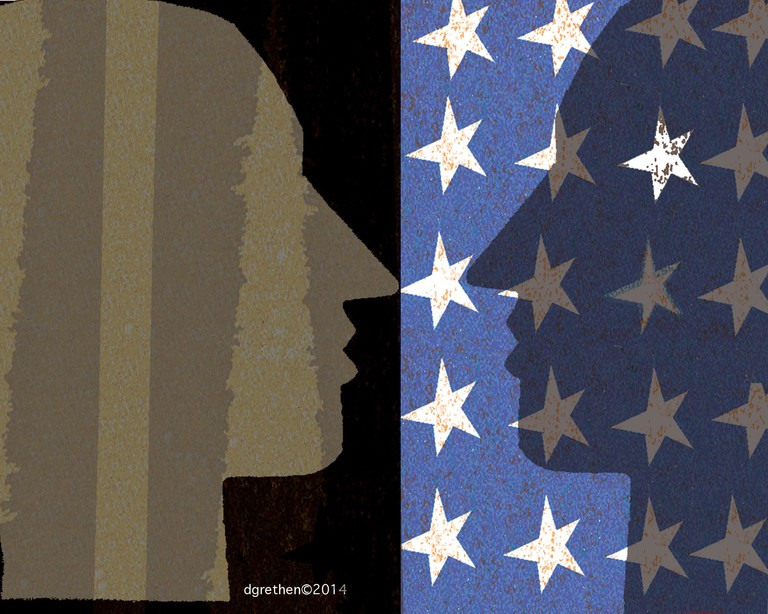As an African American with deep roots in Virginia but now living in the Northwest, the turmoil roiling the commonwealth angers me. First, I find the bigotry and insensitivity it has unearthed reprehensible. Second, the solutions being suggested do not address the underlying issues or offer real change to those most aggrieved.
I fear that should everyone accused of wearing blackface or participating in racist activities in the past step down from office, Virginia will end up with political leadership far worse than those in power now. They would have leadership ready, willing and eager to enact laws and measures that target African-American citizens with voter suppression and target women with reduced access to reproductive health.
Kurt Cox, the Republican House speaker, is slated to become governor should the current governor, lieutenant governor and attorney general step down. He is primed to continue a campaign against black voters and targeting women with reduced access to reproductive health. He filed an unsuccessful brief with the U.S. Supreme Court seeking to delay remedies to the court's findings that Virginia Republicans were guilty of African-American voter suppression and he quoted the Bible in a dramatic floor speech vowing to fight abortion.
Politics is transactional. Morality is evocational. Politicians act with an expectation of receiving something in return, while moral people act based on beliefs they find deep within about right and wrong. The crisis in Virginia conflates the two. Politics is not a particularly moral endeavor, and asking politicians to live up to the highest moral standards — or step down — is not a particularly savvy political strategy.
Some of the greatest moments in the African-American quest for justice and equality came at the hands of men and women holding the worst moral compasses. Many abolitionists were outspoken champions of ending slavery, while at the same time outspoken defenders of their superiority over African Americans. The Civil Rights Act of 1964 and the Voting Rights Act of 1965 were two landmark achievements of President Lyndon B. Johnson, who infamously referred to certain legislation as "n—er bills" and said of the Voting Rights Act, "I'll have them n—ers voting Democratic for 200 years."
Johnson was a shrewd politician. Even though both acts are under attack because they have been effective, I am glad they were enacted, albeit at the hands of a racist. African-American members of the Virginia General Assembly should be thinking more in transactional, rather than moral, terms about their leadership.
For example, they could say: "You want to stay in office? We can help you, but, in exchange, we'll need these pieces of legislation passed." This would be legislation that positively impacts the lives and welfare of the constituents they serve. "Oh, by the way," Virginia's leadership should be informed, "We'll need something more. We'll need you to demonstrate publicly your commitment to redeem yourself, and reconcile with African Americans about race, and with women about sexual assault."
Models for such redemption and reconciliation exist. After Apartheid, South Africa established a Truth and Reconciliation Commission, which provided forums for bearing witness to, recording and in some cases granting amnesty to the perpetrators of civil and human-rights violations, as well as offering reparation and rehabilitation to the victims. This is restorative, rather than retributive, justice. Virginia should have appear as the first defendants before its truth and reconciliation commission Gov. Ralph Northam, Lt. Gov. Justin Fairfax, Attorney General Mark Herring – all Democrats – and Senate Majority Leader Tommy Norment, a Republican.
As these politicians scramble to retain their jobs, the commonwealth also embarks on a quadricentennial marking the date in 1619 when the first Africans in bondage were brought to Virginia's shores. Four hundred years later, Virginia could transform its current political crisis into a demonstration for a divided nation of a path toward healing on matters of sex and race.
Reprinted from my op-ed in the Seattle Times. February 22, 2019.
As these politicians scramble to retain their jobs, the commonwealth also embarks on a quadricentennial marking the date in 1619 when the first Africans in bondage were brought to Virginia's shores. Four hundred years later, Virginia could transform its current political crisis into a demonstration for a divided nation of a path toward healing on matters of sex and race.
Reprinted from my op-ed in the Seattle Times. February 22, 2019
Image (c) Copyright Seattle Times by Donna Grethen.
